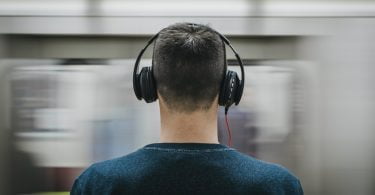Social media is everywhere—it is on every platform and at the heart of every conversation on the major topics of the day. It has shaped journalism and the wider culture that we know.
Social media is everywhere—it is on every platform and at the heart of every conversation on the major topics of the day. It has shaped journalism and the wider culture that we know. But with that culture comes many a question—why is that topic at the centre of attention, and more so, what does that say about the current culture and society?
Anne-Marie Tomchak is trying to get those questions answered. Last October, she became a part of a team within the BBC called Trending. Originally created by Mukul Devichand and commissioned as a programme for BBC World Service Radio, BBC Trending became a new unit within the BBC that would provide content for TV, radio and online, looking deeper into the trends of social media, not just about what they are.
“The key thing that makes Trending stands out is that it strives to be innovative and different,” Tomchak says in a telephone interview, noting its work despite being presented similar to an informal style on social media. “We’re reflecting what’s going on online but also ask questions.”
Since Trending’s launch, acclaim has been rising, from a nomination of an award from the Radio Academy (formerly known as the Sonys), to internal recognition within the corporation, with praise from head of news, James Harding, as social media looks to play a crucial role in the future of the BBC’s newsgathering operations.
New medium – traditional practices
For Trending, Tomchak says, it is natural for the operations to be conducted on the web and on its Twitter feed. However, there are differences, she says, noting the BBC Breaking News Twitter feed, which posts the headlines of breaking stories. It posts them and has many followers, but there isn’t time for all the tweets to be replied to. Trending has a beginning, middle and end to a story, however the end continues because of the ongoing conversation, whether the trending content is on Facebook, Twitter, Instagram or Vine.
Yet, Tomchak says, it is her colleagues that help BBC Trending excel.
“The power of the BBC is all one BBC,” Tomchak said. We aren’t separate from the rest. It empowers all of us. What makes us succeed is there is a wealth of different departments and diversity. They look at us, but we look at them too. The BBC is doing a good job of developing its audience on social platforms.”
And despite the medium of social media, it hasn’t changed the idea of journalism in the long term.
“At the heart of it, we still apply traditional practices to a new medium,” Tomchak said. “If someone is a good journalist, it shouldn’t matter about the medium. It’s just learning a language – the language of social media. If you have quality journalists, you can get quality information from that.”
The future of BBC Trending looks bright, Tomchak says. However, at the same time, there are a number of directions it can go, including long-form journalism. Yet, there is a constant, says Tomchak.
“We try to tap into global conversation or bring something new to the conversation.”
You can learn more about BBC Trending here and follow them on Twitter here. Have your say about Trending and social media in the comments section below.








